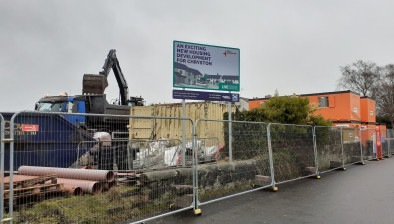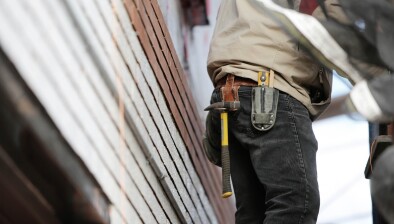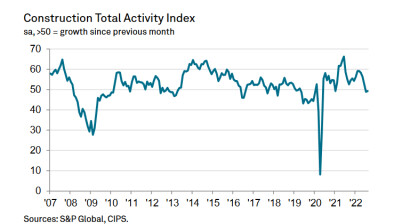ONS: Output up over three month series but down month-on-month
New output figures from the Office for National Statistics (ONS) have painted a mixed picture for the UK construction sector.

Construction output increased by 0.4% in the three-month on three-month all work series in April 2019. This increase was driven predominately by a 1% rise in the all repair and maintenance series, which itself was boosted by a 2.3% increase in non-housing repair and maintenance.
New work experienced minimal growth, increasing by 0.1% in the three months to April 2019, with the growth in infrastructure (3.6%) and public new housing (4.7%) being counterbalanced by falls in private commercial new work (negative 2.2%) and public other new work (negative 2.3%).
However, construction output decreased by 0.4% in the month-on-month all work series due to a 2.1% fall in repair and maintenance, which was offset with growth of 0.6% in new work.
New orders grew 9.6% in Quarter 1 (Jan to Mar) 2019 against the previous quarter; this growth was driven by a 16.1% increase in other new work, offset slightly with a fall of 4.6% in housing new work.
Mark Robinson, Scape Group chief executive, said: “While it is very promising to see that all new work increased by £153 million on the quarter, activity began to falter again in April. And now we are continuing to rely on private housing to prop output up.
“In order to avoid the slump turning into a prolonged trend, the industry needs direction, but it’s looking unlikely that the government will be getting its act together anytime soon. Farcical political party infighting is continuing to derail not only progress on Brexit, but everything else on the political agenda. And over the past couple of days, it has become very apparent that the Conservative Party is descending down a path of self-destruction and are at risk of taking the country down with them.
“It is important we remain resilient in the face of adversity, and construction firms should press ahead with jobs where they can. However, in order for the country to move forward, we do need clarity not only on big-ticket infrastructure decisions but also on the future of local authority funding so our towns can continue running efficiently and effectively. Internal affairs should not interfere with the upcoming spending review.”
Allan Callaghan, managing director of Cruden Building, part of the Cruden Group, said: “It’s encouraging to see output figures looking more positive this month but for continued growth in the sector, we need to increase the number of people choosing to work in construction.
“That’s why at Cruden, we have always undertaken a successful apprenticeship scheme where we help to shape and prepare future generations entering the construction sector, illustrating our ongoing commitment to addressing skills shortages within the industry while supporting our ongoing growth aspirations.”
Blane Perrotton, managing director of the national property consultancy and surveyors Naismiths, added: “Such washout figures were, sadly, more predictable than the mid-June deluge that greeted them.
“Despite growth in infrastructure and public new housing, declines in private commercial and public other new work meant that new work as a whole barely grew at all — just 0.1%.
“And just like the weather, pessimism in the industry is not confined to London.
“It is important that the 9.6% uptick in new orders seen in Q1 is not interpreted as indicative of a healthy UK construction sector. It is actually more likely the result of developers trying to get projects over the line before Britain was due to leave the EU on March 29.
“While repair and maintenance work continues to drive growth as a whole, it continued to slow to 0.7% in April, compared to 3% in March, as the sector edges ever-closer to flatlining.
“Until Britain’s post-Brexit future is cemented, inactivity is likely to continue dominating headlines and soundbites. Realistically, it will not be until Halloween at the very earliest that the industry stops sitting on its hands.”

















